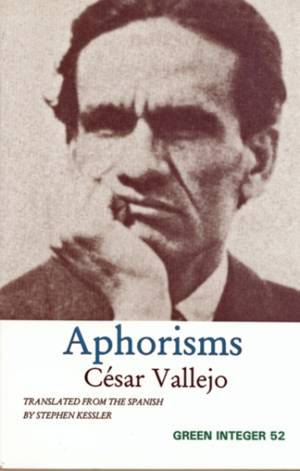
- Retrait gratuit dans votre magasin Club
- 7.000.000 titres dans notre catalogue
- Payer en toute sécurité
- Toujours un magasin près de chez vous
- Retrait gratuit dans votre magasin Club
- 7.000.0000 titres dans notre catalogue
- Payer en toute sécurité
- Toujours un magasin près de chez vous
Description
As the translator writes in his introduction: "These are not aphorisms in the classical sense of philosophic gemstones cut and polished to epigrammatic perfection. They are more like thoughts-in-progress from the notebooks of a radical modernist poet trying to regain his bearings after a consciousness-shaking encounter with Soviet socialism. Vallejo, one of the most distinctive and challenging individual voices in a period of great creative ferment throughout Europe and especially poets writing in Spanish, appears to have experienced in 1928 an almost religious conversion to Marxism. From Paris, where he had been self-exiled from his native Peru since 1924, he traveled to both Russia and Spain toward the end of that decade, and the dynamic tension between his own subjective, visionary poetics and a desire for solidarity with the masses energizes and haunts these writings."
Born in 1892 in a small Andean town, César Vallejo published Los heraldos negros in 1919 and his masterpiece, Trilce, in 1922. He died in Paris in 1938.
Spécifications
Parties prenantes
- Auteur(s) :
- Traducteur(s):
- Editeur:
Contenu
- Nombre de pages :
- 83
- Langue:
- Anglais
Caractéristiques
- EAN:
- 9781931243001
- Date de parution :
- 01-04-01
- Format:
- Livre broché
- Format numérique:
- Trade paperback (VS)
- Dimensions :
- 110 mm x 156 mm
- Poids :
- 72 g

Les avis
Nous publions uniquement les avis qui respectent les conditions requises. Consultez nos conditions pour les avis.






